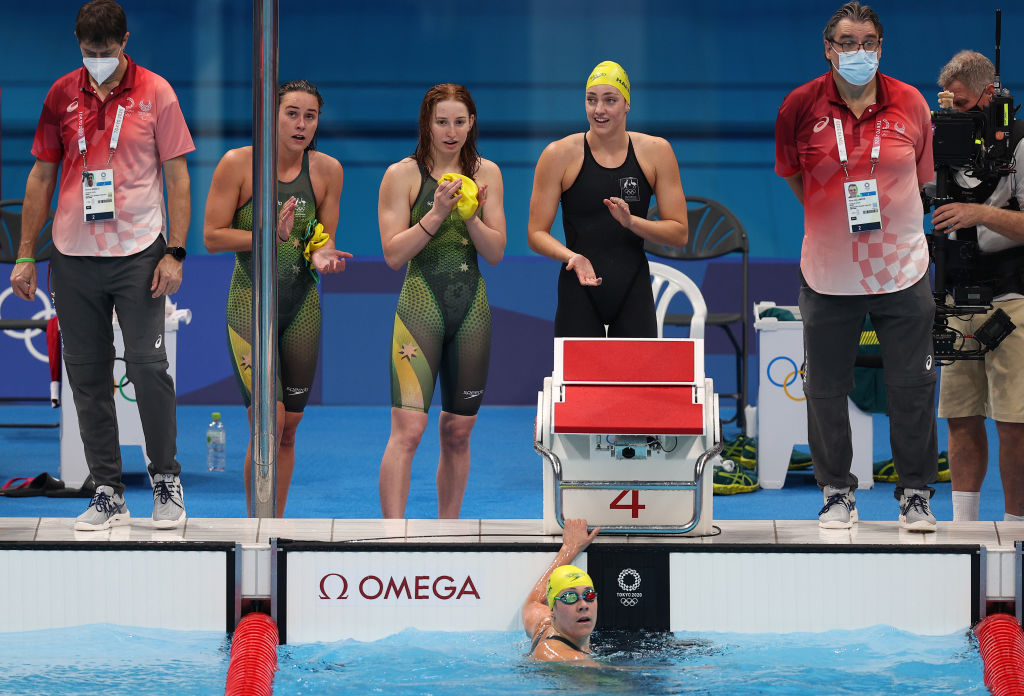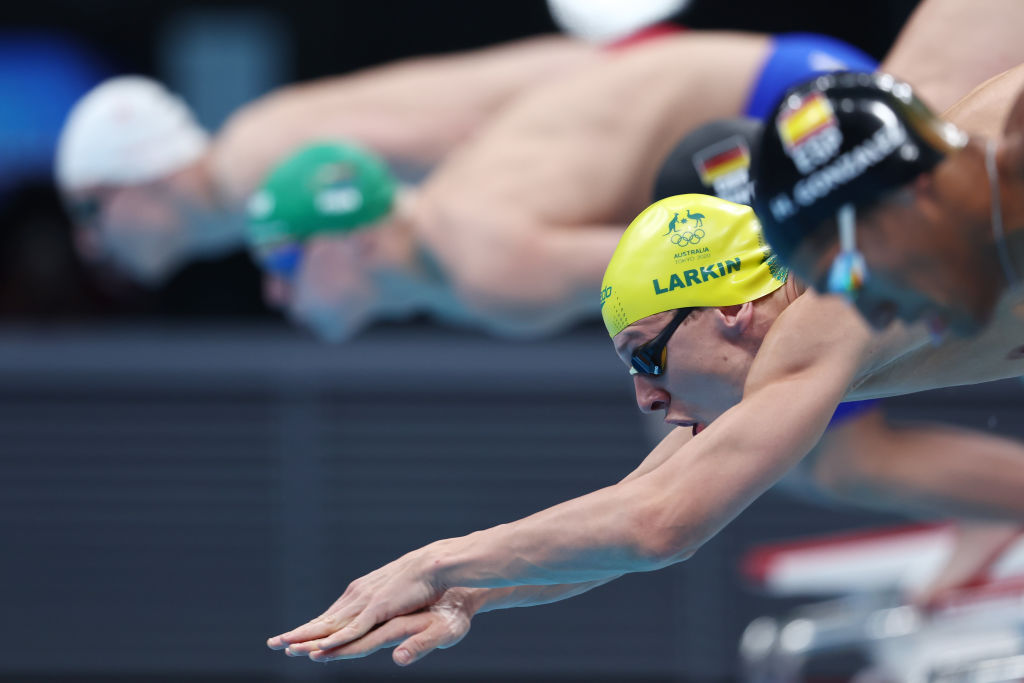SWIMMING: Emma McKeon had fired off an earlier warning shot to her rivals in the 4x100m freestyle relay but she came out blazing in the 100m freestyle heats on Wednesday night, alerting the world she has come to the Tokyo Olympics with speed to burn.
It was her 51.3sec split in the third leg of the Australian relay that first alerted the world that McKeon had arrived in Japan well and truly ready to race. That was good news at the time for Cate Campbell, easing the pressure on her as she was able to turn her anchor leg swim into a victory lap, but it also alerted her that she would have trouble from her fellow Dolphin in the quest for the individual 100m gold.
McKeon’s swim in heat six of the event really was a statement of intent. Sarah Sjoestroem had just laid down an impressive 52.91sec win in the previous heat, the ease of it laying to rest once and for all that the Swedish world record holder is now fully recovered from the broken elbow she sustained in February.
But then came the thunderous response from McKeon, a sizzling 52.13sec, just half a second outside Sjoestroem’s world record. But the Swedish champion did not completely escape unscathed, with her Olympic record of 52.62sec being unceremoniously cast aside by the Australian. McKeon’s time would have won the Olympic gold at all 24 Games contested – and by some distance.
Indeed, Siobhan Haughey of Hong Kong (52.70sec) and Briton Anna Hopkins (52.75sec) jumped on her coattails and breezed through into the semis as the next fastest swimmers.
McKeon already has six Olympic medals to her keeping and is likely to finish these Games as the greatest Australian Olympian of all time if she can eclipse the nine medals of Ian Thorpe and Leisel Jones, but she has never won an individual gold. That might be an oversight she is prepared to rectify, if this swim is any indication. She made it look easy.
Campbell, in the nicest possible way, will be doing everything in her power to prevent that. Given how fiercely she and McKeon contested the Olympic trials, she would have closely monitored her team-mate’s blistering performance and wisely settled to keep her powder dry. She comfortably won her heat in 52.80sec, holding off one of the two women who dead-heated for the gold ahead of her at Rio 2016, Canada’s Penny Oleksiak.

Australia’s incredible depth on show in 4x200m relay
Intriguingly, McKeon scratched from the 200m freestyle at Tokyo but with it was revealed after Australia blitzed all opposition in the 4x200m freestyle relay heats that the Dolphins will field a completely new quartet for the final. That is an extraordinary demonstration of depth but with Ariarne Titmus winning the individual 200m freestyle here, Madi Wilson placing eighth in the final, McKeon holding the seventh fastest time in the event, 1:54.55, and – presumably either Cate Campbell or Leah Neale to be called upon, Australia looks like selecting an awesome quartet to race for gold.
Still, spare a thought for 17-year-old Molly O’Callaghan who posted a 1:55.11 in the lead-off leg, a time which knocked Bronte Barratt out of the 18th fastest time in history. After O’Callaghan the strong performances kept coming with Meg Harris (1.57.01), Brianna Throssell (1.56.46) and Tasmin Cook (1.56.03) all swam their hearts out, knowing that none of them would swim for gold on.

Larkin comfortably into medley semis
The Aussie medal assault paused to draw breath on a night of heats-only swims but the onslaught is expected to continue on Thursday. Mitch Larkin qualified ninth fastest in the 200m individual medley despite winning his heat in 1:57.50. Australia’s other representative Brendon Smith, the Olympic 400m IM bronze medallist here, sadly did not make the cut after a 1:58.57 heat swim.
As with all of his swimming, he and coach Dean Boxall has given careful thought to what was required to make it through the semis and he delivered to perfection, just beating 35-year-old Laszlo Cseh’s time by one-hundredth of a second. Enjoy Cseh’s swimming while you can. Indications are that this is the last event of his career.
Rising American Michael Andrews showed where he is taking the 200m IM in the post-Michael Phelps era, unleashing a 1:56.40 swim to lead the field into the semi-final stage.
Larkin must have swum this race with one eye on the men's 200m backstroke, the race which he won the silver medal in at the 2016 Rio Games. That was the best result Australia had ever achieved in the event in Games history and yet Larkin didn’t want it to jeopardise his 200mIM.
“I grew up as a medley swimmer so I feel like I have come back to my roots,” he explained. “I’m pretty comfortable with my decision.”
In his absence, Tristan Hollard carried the flag for Australia, advancing to the semis with the 10th fastest time of 1:57.24.
With South African Tatiana Schoemaker almost breaking Rikke Pedersen’s world record in the 200m breaststroke – settling instead for an Olympic record of 2.19.11, the efforts of Australia’s Jenna Strauch and Abbey Harkin in the same heat were almost overshadowed. Both were swimming in the Olympics for the first time, with Strauch advancing on her 2.23.30 but sadly not Harkin.
Wayne Smith

